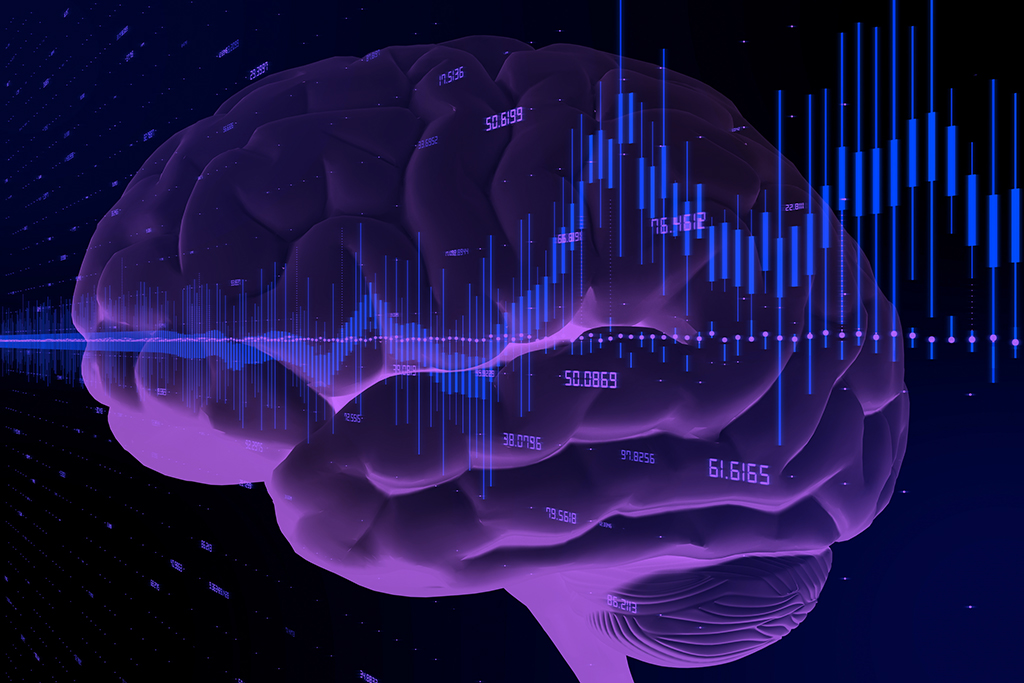How does the Trader’s brain work?

To be successful in FX trading, traders must possess a variety of skills, including a deep understanding of market trends, technical analysis, and risk management. But what role does the brain play in this process? How does the brain work with FX trading?
The Brain’s Role in Decision Making
The brain is the central organ of the human nervous system, and it plays a critical role in all aspects of our lives, including decision-making. When it comes to FX trading, the brain is responsible for processing vast amounts of information in a short period of time, analyzing market trends, and making split-second decisions. It uses a variety of cognitive processes to make decisions. These processes include attention, memory, perception, and reasoning.
For example, when a trader is analyzing market trends, his/her brain must be able to focus a lot of attention on relevant data, recall important information from memory, and use logical reasoning to make predictions about future market behavior. Additionally, the brain must be able to quickly adapt to changing conditions and make adjustments to trading strategies as needed.
The Role of Emotions in FX Trading
While the brain is essential for making logical decisions in FX trading, emotions also play a critical role in the process. Emotions can influence our decisions in both positive and negative ways, and they can have a significant impact on our ability to be successful traders. When we experience positive emotions such as confidence, excitement, and joy, we are more likely to take risks and make bold decisions. However, negative emotions such as fear, anger, and frustration can cloud our judgment and lead to poor decision-making.
This means developing strategies to cope with stress, maintaining a positive mindset, and avoiding impulsive decisions based on emotional reactions.
Understanding the emotional processes connected to trading, we as a broker, had to somehow find a way to be of proper assistance with regards to emotional trading.
Hence, we offer completely free of charge Capitalizer.AI platform to flush out emotional decision making by semi to fully automating a trading strategy or a set of trading strategies.
The Role of Neuroplasticity in FX Trading
Finally, it is worth noting that the brain has the remarkable ability to change and adapt over time. This process, known as neuroplasticity, allows us to learn new skills, form new habits, and improve our ability to make decisions in FX trading and other areas of life.
This can lead to more effective decision-making, improved risk management, and ultimately, greater success in FX trading.
Traders must be able to process vast amounts of information, analyze market trends, and make split-second decisions based on a variety of cognitive processes. Additionally, traders must learn to manage their emotions effectively and harness the power of neuroplasticity to improve their decision-making over time.
FX trading can evoke a wide range of emotions in traders, but some of the most common emotions experienced by FX traders include:
- Fear: Fear is a natural emotion that arises when traders are faced with potential losses or risks in the market. Fear can cause traders to hesitate or second-guess their decisions, leading to missed opportunities or impulsive decisions.
- Greed: Greed is the desire to make more profits and can cause traders to take on excessive risks or ignore their trading plan. Greed can also lead traders to hold winning positions for too long, leading to losses when the market turns against them.
- Frustration: Frustration is a common emotion experienced by traders when things don’t go as planned. This can happen when trades don’t work out or when traders miss opportunities they were anticipating.
- Anxiety: Anxiety is the feeling of unease or nervousness that traders experience when they face uncertainty or potential risks in the market. Anxiety can cause traders to second-guess their decisions or hesitate when making trades.
- Overconfidence: Overconfidence can lead traders to take on excessive risks or ignore their trading plan, believing that they can predict the market with certainty. This can lead to losses and missed opportunities.
These emotions can be both positive and negative depending on how traders manage them. Successful traders learn to manage their emotions and remain objective when making trading decisions.
The information provided here has been prepared by Eightcap’s team of analysts. All expressions of opinion are subject to change without notice. Any opinions made may be personal to the author and do not reflect the opinions of Eightcap.In addition to the disclaimer on our website, the material on this page does not contain a record of our trading prices, or represent an offer or solicitation for a transaction in any financial instrument. Eightcap accepts no responsibility for any use that may be made of these comments and for any consequences that result. No representation or warranty is given as to the accuracy or completeness of this information. Consequently, any person acting on it does so entirely at their own risk. Any research provided does not have regard to the specific investment objectives, financial situation and needs of any specific person who may receive it. It has not been prepared in accordance with legal requirements designed to promote the independence of investment research and as such is considered to be a marketing communication. Please note that past performance is not a guarantee or prediction of future performance. This communication must not be reproduced or further distributed without prior permission.


